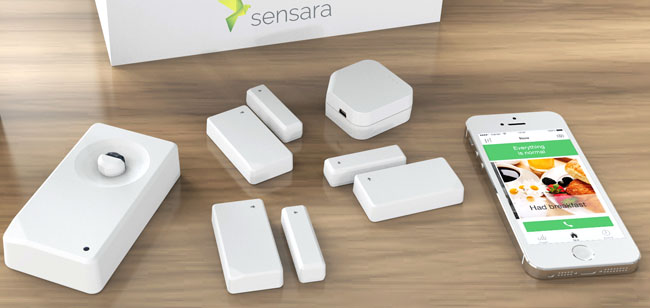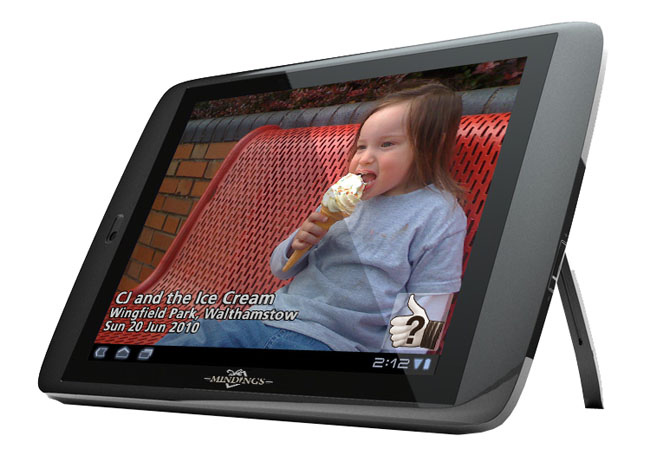This article is more than 1 year old
Be your own Big Brother: Keeping an eye on Mum and Dad
All watched over by machines of loving grace
Common sensor
According to Links, once the initial learning has been done, it should be possible to receive an alert within minutes when something goes wrong. Of course, what happens next is up to you. There's potential for longer term trend spotting too: for example, noting that someone's average speed of moving around the home has decreased over the last few months, though obviously the system's not quite as sophisticated as its fictional counterparts.

A modest selection of Zigbee sensors is all it takes to get the Senior Lifestyle system up and running
Green Peak is trialling the system with service providers in Germany and China at the moment. Its vision is that set top boxes from cable or satellite companies will provide the Zigbee hub, and the operators will offer the Senior Lifestyle service to their customers. While that makes sense in some situations, I'm not entirely sure it's suitable for everyone - do I really want to have to get cable installed and pay a monthly TV subscription, just to take advantage of a system like this?
A more useful option, I think, might be an option that provided a small Zigbee standalone hub – especially for those who live some distance away. If used in association with a home care service, or even a local health centre, you could be sure that someone would be able to respond in an emergency, even if you yourself live too far away.
Stay in touch
Monitoring is not the only way to use technology to help with older relatives. The geographical spread of families I mentioned earlier, together with the way in which so much of what happens now is shared online – baby pictures, news of new jobs, and so on – can create a sense of being slightly left out. Evidently lots of older people do go online, but there are many that don't, and have no real interest in doing so.
Elderly social media refuseniks are at least one type of individual that a UK-based service called Mindings is aimed at, though it has plenty of other uses, as we'll see.
Essentially, Mindings is an app that runs on an inexpensive Android tablet and can pull information from sources including Facebook, allowing those baby photos and other things to be displayed just like they're on a digital picture frame.

Mindings media sharing on an Archos tablet
You can send text, too, helping to make sure that people can keep in touch with the family's online life, even if they don't want to sign up for Facebook and suchlike themselves. And yes, you can choose what gets shared, to avoid any unpleasant surprises. There's a PC app too, for those who are a little more tech-savvy.
Yet there's more to Mindings than just sharing photos. It’s also been trialled by health services as a way to help people carry on living independently for longer, including those with dementia. It's possible, for instance, to send pictures with notes reminding the receiver what or who is in the image. Also texts alone can be used as reminders to take pills, or to go to see the doctor on a particular day.
In some cases, as the video below shows, systems like this can help ensure that people can remain independent in their own home for longer - and other studies have shown that users feel happier and less isolated.
Official Mindings video where users discuss how they feel about the tech
It's also worth a read of the blog about the Mindings trial with dementia sufferers, both for the results, and the tips it contains about how a little extra work on the part of people sharing information can make it much more useful.
Keeping mum
I'm hoping to be able to try the Green Peak system out for myself (with a willing guinea pig) but regardless of the method, you have to ask: would your parents be happy knowing they're being watched over by machines of loving grace?
Even if it’s camera-less monitoring, would it still feel like too much of an intrusion? How do you square that with their personal desire to remain independent for longer? And what solutions, homebrew or otherwise, do you resort to for keeping an eye on elderly relatives if they're not close enough to pop in every day? ®
